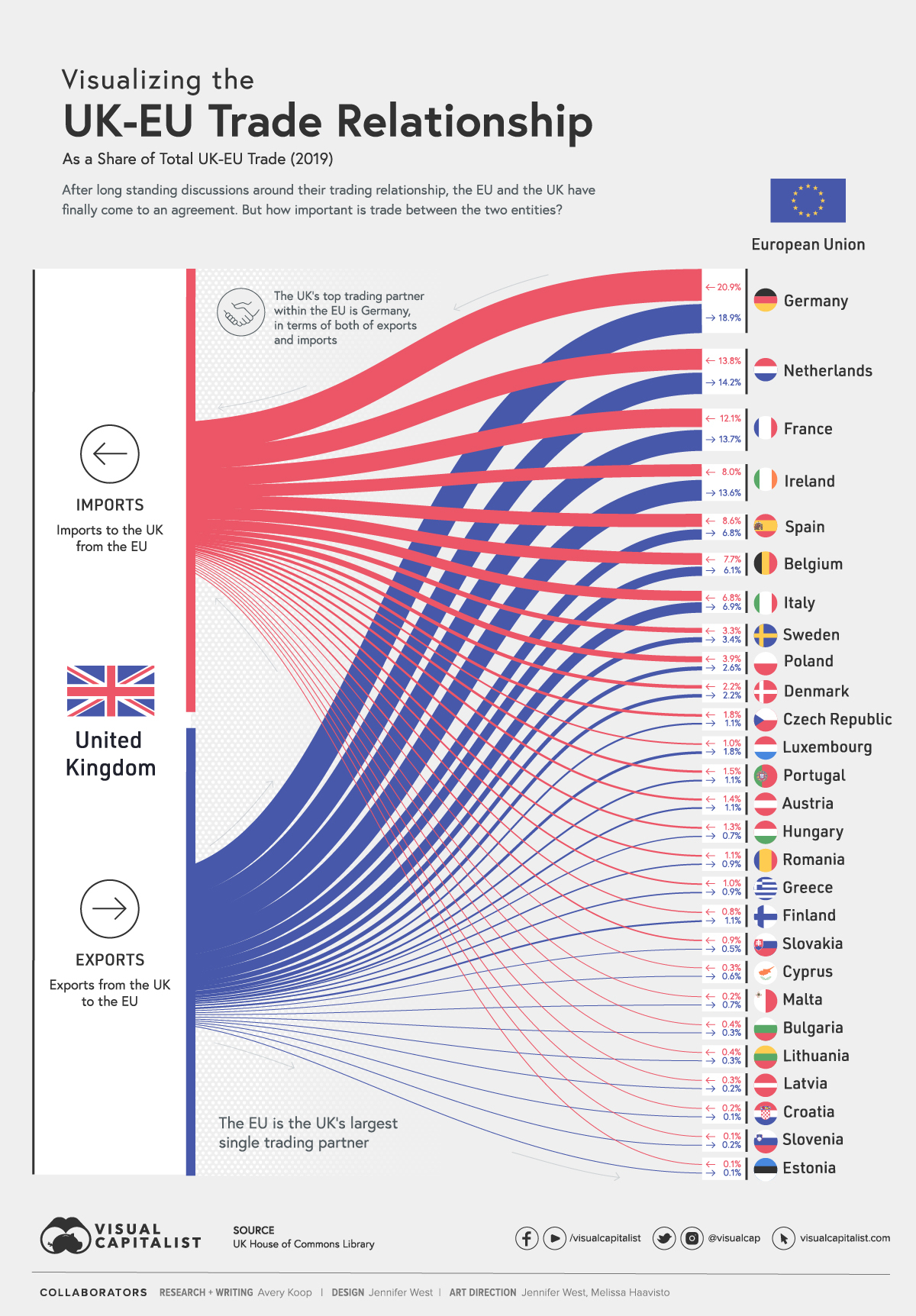Visual Capitalist posted a chart of the UK's trade relationships with the EU members. A chart like this could be done for just about any country.

Also, rather obviously, countries also trade most with whomever is economically biggest: bigger economy tends to mean more trade.
So, not surprisingly, the UK trades the most with Germany: it's big, it's fairly close, and it's culturally similar to the UK.
France and Italy are the next two biggest countries in the EU, and the UK trades less with them because they're smaller. They're also more culturally similar to each other, than they are to the UK, which will tend to decrease trade. Italy is further away than France, so it's lower on the list.
The UK, the Netherlands, and Germany share a more Germanic culture, language, and majority Protestant background. On the other hand, Belgium shares with France and Italy a Romance language and "latin" culture, and majority Catholic background. So, the Netherlands is a bigger trading partner than is Belgium, even though the countries are comparable and Belgium is closer.
The other big trading partner is Ireland. Different culture, different religious background, but a mostly shared language. AND, Ireland is the only country that shares a land border with the UK, and it's also the fairly close over water, so, lots of trade there.
Alternatively, if you look down towards the bottom of the list, you see mostly countries that have a Slavic rather than a Germanic language, most of which are further away, and smaller, with a religious background that is sometimes Catholic and something Eastern Orthodox. The UK doesn't trade much with those countries, but there are exceptions. Cyprus and Malta, are the two smallest countries in the EU. And yet they are not at the bottom of trade with the UK. Why is that so? Probably because both of them spent time as colonies of the UK!
FWIW: a model in which trade depends on distance is called a "gravity model". Paul Krugman (who now writes an opinion column for The New York Times) won a Nobel Prize for its development.
No comments:
Post a Comment